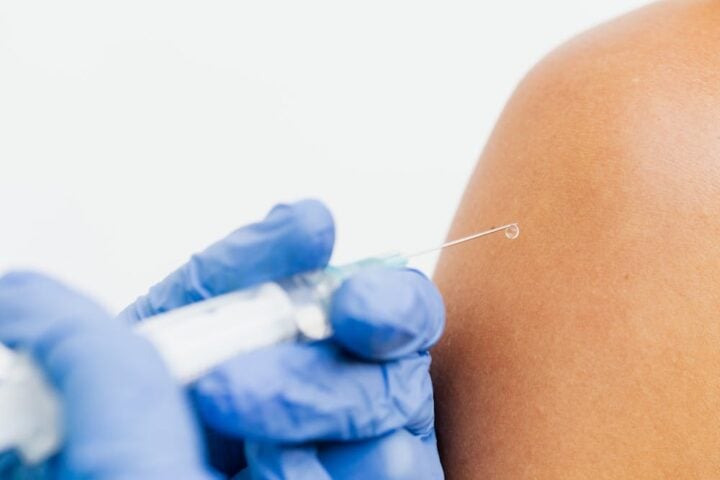A University of Notre Dame study found concerning levels of toxic chemicals in popular smartwatch bands, prompting lawsuits and raising questions about the safety of wearable technology.
Recent testing has revealed that smartwatch bands from 15 major brands—including Apple, Nike, Fitbit, and Google—contain high levels of harmful “forever chemicals” linked to cancer and other health issues.
What the research found
Researchers at the University of Notre Dame analyzed 22 smartwatch bands across various brands and price points. Their findings, published in the Environmental Science & Technology Letters, revealed that 15 of these bands contained significant concentrations of per- and polyfluoroalkyl substances (PFAS).
The study detected perfluorohexanoic acid (PFHxA) in approximately 40% of the tested bands. This specific chemical, commonly used in clothing, carpet, paper, and insecticides, has been linked to liver disease. According to The Guardian’s reporting cited in the Times of India article, the European Union has proposed banning PFHxA in consumer products, including watch bands.
“Many ‘smart’ and ‘fitness’ watch bands are advertised to contain fluoroelastomers, a type of synthetic rubber designed to be resilient against skin oils and sweat,” the researchers noted in their study.
Health risks of ‘forever chemicals’
PFAS are nicknamed “forever chemicals” because they don’t break down naturally in the environment or the human body. Scientific research has linked these substances to serious health concerns, including:
- Increased risk of kidney, prostate, and testicular cancers
- Liver damage and disease
- Thyroid disorders
- Developmental problems
- Compromised immune function
- Fertility issues and birth defects
What makes these findings particularly concerning is that smartwatches are worn directly against the skin for extended periods. Research indicates that PFAS can be absorbed through the skin.
Legal action against Apple
Apple faced a class-action lawsuit alleging that its “Ocean,” “Nike Sport,” and “Sport” Watch bands contain high levels of PFAS. The lawsuit, as reported by Times of India, claims Apple concealed the presence of these toxic substances while marketing the watches as health-monitoring devices.
According to reporting from The Economic Times, the lawsuit states that Apple has been claiming its products are manufactured using fluoroelastomer, a synthetic rubber containing fluorine. However, the legal complaint challenges this assertion, stating that “the tech giant hid the fact that the synthetic rubber actually contained PFAS within all other manufacturing materials.”
Similar Posts
Apple’s response
Apple has publicly defended its products in response to these allegations. In a statement to CNET quoted by The Times of India, an Apple spokesperson said: “Apple Watch bands are safe for users to wear. In addition to our own testing, we also work with independent laboratories to conduct rigorous testing and analysis of the materials used in our products, including Apple Watch bands.”
The company also emphasized its commitment to phasing out PFAS from its products and manufacturing processes, acknowledging the challenges and time needed to identify suitable alternatives. Apple reportedly made this commitment in 2022 and claims to be “a leader in the industry’s efforts to remove potentially harmful chemicals from its products.”
Other Apple products with hazardous materials
This isn’t the first time Apple products have been flagged for containing potentially harmful substances. According to reporting from the Daily Mail, numerous charging devices sold by Apple contain chemicals known to cause cancer, birth defects, and other reproductive harm.
These include eight devices as reported by Daily Mail: Nimble Podium 3-in-1 Wireless Charger, Nimble Valet 3-in-1 Wireless Charger, Nimble Champ 10k Portable Charger, Nimble 3-in-1 Fold Wireless Charger, Nimble Watch Stand, mophie powerstation pro, mophie powerstation mini, and mophie Magnetic Wireless Charging Car Vent Mount.
Many of these devices contain Bisphenol A (BPA), a chemical commonly used to harden plastics that is known to disrupt hormonal function. Studies have shown that BPA exposure may cause fertility issues, disrupt sexual development, and lead to cancer and other health problems.
Understanding ‘forever chemicals’
PFAS are found in many everyday items beyond smartwatch bands. These chemicals are commonly used in:
- Non-stick cookware (Teflon coated pans)
- Grease-resistant paper and food wrappers
- Fast-food packaging and microwave popcorn bags
- Outdoor gear
- Carpets and upholstery
- Firefighting foams
- Cosmetics like foundation and mascara
- Electronics and medical devices

These substances enter our bodies through contaminated water (particularly near industrial sites), food packaged in PFAS materials, and through excessive use of coated cookware. Their widespread use has led to their presence in soil, water, air, and even in human and animal blood globally.
As public awareness grows about the potential dangers of these chemicals, consumers are increasingly pushing for greater transparency in product labeling and safer alternatives. Meanwhile, regulatory bodies like the EPA in the United States and agencies in the European Union are working toward stricter regulations on PFAS use in consumer products.For those concerned about exposure, experts recommend researching PFAS-free alternatives and being wary of products advertised as “water resistant,” as this feature often relies on these harmful chemicals.


















